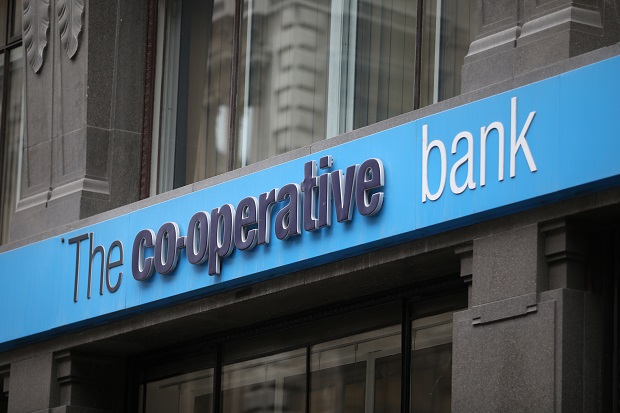The Co-operative Bank, an ethical lender based in Manchester, has extraordinarily loyal customers. Why, you might wonder, is having loyal customers so extraordinary? Well, in the case of Co-op Bank, you could hardly blame them if they took their accounts elsewhere.
The fact so many have stayed put, despite the bank’s spectacular fall from grace, might well have something to do with the paucity of other options on offer. There’s a screaming need for an ethical alternative to the bonus-hungry greed of the mainstream banks, who all too often treat their customers with contempt.
Before it ran into the rocks, it seemed as though the Co-op Bank fitted the bill.
But then it made the fateful decision in 2009 to embark on a disastrous takeover of the Britannia Building Society. The takeover was meant to create a ‘super-mutual’ – a financial institution run on co-operative lines for those sick to death of the antics of the Big Four: Barclays, RBS, HSBC and Lloyds.
That’s not quite how it turned out. By 2014, the Co-op Bank was buckling under the weight of Britannia’s toxic debts, which it had somehow managed to overlook while planning the deal.
Then there were the headlines about the bank’s former chairman, defrocked Methodist minister Paul Flowers, who had a penchant for drug-fuelled debauchery with rent boys.
The upshot was that the Co-op Group, which had been the owner, was forced to sell 80 per cent of the lender to US hedge funds.
Despite this catalogue of woe, the bank still has four million customers and continues to hold around £22 billion of savers’ money. True, that’s less than three years ago, when it had 4.4 million customers and £28 billion of savers’ cash – but it’s still a long way from being a mass desertion.
This ‘stickiness’ is all the more remarkable because, far from improving, the bank’s problems are likely to come to a head this summer.
It needs £750 million of new capital in the next few months and, if a solution cannot be worked out between the regulators and a group of hedge funds which hold a large tranche of bonds, then the Bank of England may have to step in. The Co-op Bank could, in that case, be put it into a process called ‘resolution’, which aims to wind down troubled banks in an orderly way without having to tap taxpayers for cash.
It’s a terrible shame that the Co-op Bank’s ethical ideals were so badly betrayed.
People are profoundly disillusioned with the banks and who can blame them? Nearly a decade on from the financial meltdown of 2008, allegations of murky behaviour continue to surface, including the charges recently brought against Barclays and four of its former executives by the Serious Fraud Office.
So far, the crisis-era bank bosses such as former RBS chief executive Fred Goodwin, who was stripped of his knighthood but kept a pension of more than £340,000 a year for life, have got away relatively lightly.
Goodwin could have been sweating out the summer in the High Court in London, being grilled in a case brought by small shareholders. Fortunately for him, the bank settled with disgruntled investors so he is pottering around the posh Archerfield golf course in Edinburgh instead.
At the same time, of course, customers continue to be subjected to IT failures, seemingly endless mis-selling scandals, high fees and charges and lacklustre service.
So is there anything ordinary customers can do in terms of getting better banking? Other than trying one of the challenger banks, which may or may not prove to be any better, you could buy a share, turn up at the annual meeting and give the chairman a hard time.
It’s a technique I’ve seen work surprisingly well, as it may be picked up by the media, generating unwelcome headlines. And perhaps as bank customers and small shareholders, we should agitate for a customer representative on all bank boards to make sure the interests of account-holders are taken into account by the top brass.
Above all, the industry needs an urgent injection of ethics. The very fact that ‘ethical banking’ is considered a niche activity for fringe banks, and not a basic standard customers can take for granted, is revealing in itself. The industry is so neck-deep in cynicism that everyone seems to have forgotten a simple and obvious point: all banking should be ethical, all of the time, for all of the customers.
Ruth Sunderland is City Features Editor of the Daily Mail






Comments